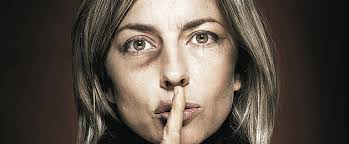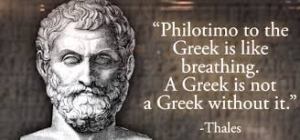 Here at The Terrace we have a focus on couples work, and were interested to hear reports yesterday that some men, deemed to pose a high risk of domestic violence, will be given therapy on a one to one basis in order to address their abusive behaviour. Called ‘Drive’, the initiative is currently restricted to three pilot areas – Essex, Sussex and South Wales – but if successful it will be rolled out across the country. It is estimated that 900 of the most ‘dangerous’ offenders (those deemed at risk of causing serious bodily harm, or committing murder) will be asked to take part in the scheme over the next three years.
Here at The Terrace we have a focus on couples work, and were interested to hear reports yesterday that some men, deemed to pose a high risk of domestic violence, will be given therapy on a one to one basis in order to address their abusive behaviour. Called ‘Drive’, the initiative is currently restricted to three pilot areas – Essex, Sussex and South Wales – but if successful it will be rolled out across the country. It is estimated that 900 of the most ‘dangerous’ offenders (those deemed at risk of causing serious bodily harm, or committing murder) will be asked to take part in the scheme over the next three years.
At the moment, perpetrators are asked to take part in group work or family therapy. In the new scheme, they will be given bespoke one-to-one sessions, given support to tackle any alcohol, drug or mental health problems they experience and offered advice on employment, housing and parenting issues. If they refuse to take part they will be ‘closely monitored’ by police and any necessary legal steps take to prevent further offending behaviours.
It has been acknowledged that the most serious perpetrators need to be targeted to ensure they do not go from victim to victim without changing their behaviour. Domestic abuse charities Respect and SafeLives are supporting the initiative, whilst the charity Refuge has doubts, considering there to be no evidence that this type of therapy has any effect.
On the BBC website Sandra Horley, chief executive of Refuge, is quoted as saying:
“On the face of it, it seems like a worthy thing to do. In an ideal world we would approach this from both sides. But we don’t live in an ideal world…..We live in a world where thousands and thousands of women and children are being terrorised and brutalised in their homes and they have nowhere to go. And sadly, finding a refuge space in this country is like finding gold dust.”
Her counterpart at SafeLives, Diana Barran, disagrees:
“Despite significant improvements for victim safety in the UK there are still 100,000 women who live with high-risk domestic abuse at any one time……If you do not hold perpetrators to account, we will continue to see the statistics at a standstill.
“Focusing on crisis management is of course vital but we want to help victims today and reduce the number of victims of tomorrow – and we can only do this by getting to the root and the cause of the problem – the perpetrator.”
Critics expressed concern that the most dangerous offenders are often the most manipulative, and will be able to convince professionals they are changing whilst continuing the abuse behind the closed doors of their homes, or will wait till they are deemed ‘safe’ and move on to another victim.
The issue of domestic abuse is one that we will follow closely here at The Terrace. It does not only affect adult relationships, but the future life hopes of any children of the relationship too, many of whom suffer lifelong trauma and are vulnerable to repeat behaviours.We would be interested to hear your views.
If you or anyone you know needs more information or support, the following links will take you through to people who can help.
For BBC Report see http://www.bbc.co.uk/news/uk-35591041
 Here at The Terrace we are lucky enough to have a group of therapists skilled at working with clients on specific issues. Today we are highlighting
Here at The Terrace we are lucky enough to have a group of therapists skilled at working with clients on specific issues. Today we are highlighting 











